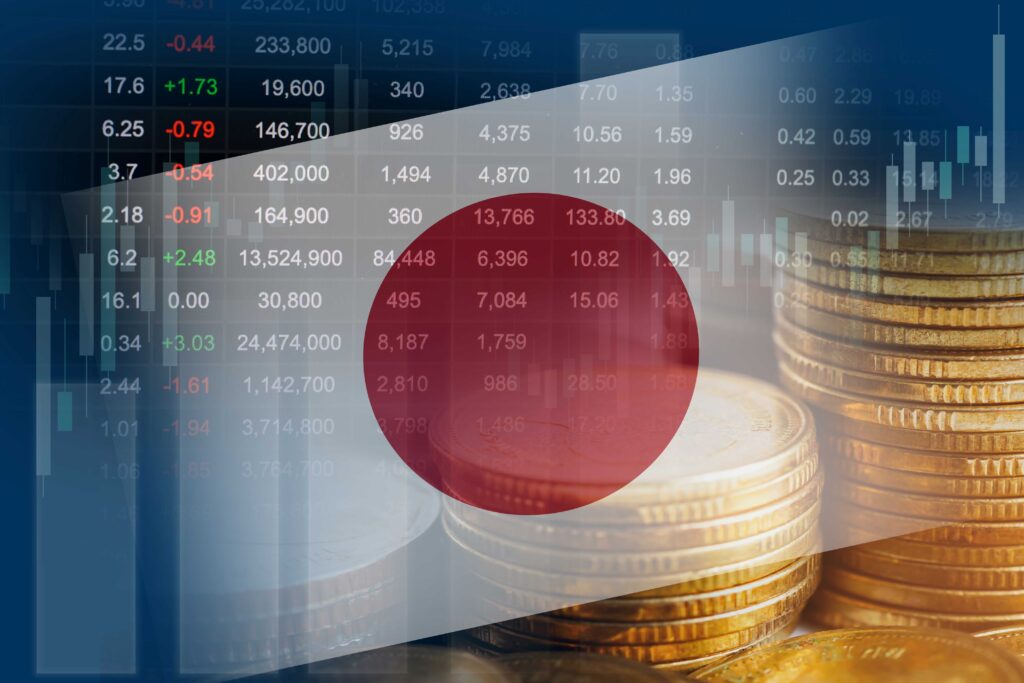

For many years, Japan has been considered as “tomorrow’s story”, where there is much promise, but returns disappoint. That is until this year, where the Japanese Equities market has shown considerable strength. There is good evidence to support further outperformance; however, investors would be well advised to look to the past to understand why Japanese markets have struggled over an extended period, and the steps that policy makers need to take to avoid treading a similar path in the future.
Learning from history
The Japanese stock market has endured over 30 years of underperformance, following a significant economic bubble that formed in the late 1980s. At the time, Japan was growing more rapidly than many Western economies, and spurred on by lax monetary policy and growing investor appetite, the Nikkei 225 – the most widely reported stock index in Japan – increased from an index value of 13,000 in 1985 to reach a high of 38,915 in December 19892. Across the board, asset prices rose, with the bubble spreading to other asset classes, such as real estate, where values of stocks and property reached overly optimistic levels of valuation.
Asset bubbles tend to end in a disorderly manner, and following the boom, the Nikkei 225 fell heavily in the early 1990’s. Following rapid acceleration during the previous decade, the Japanese economy moved into an extended period of low growth, due to the lingering effects of the asset bubble. The Bank of Japan moved to reduce interest rates to near zero, a level at which rates have broadly stayed ever since, in an attempt to reignite economic growth.
Economics and demographics
One of the reasons why Japan’s economic performance has been an outlier, when compared to other Western economies, are the demographics of the Japanese society. Population levels in Japan are in decline, and the World Economic Forum reports that more than 1 in 10 people in Japan is aged over 80. This has helped keep a lid on domestic consumer demand and there has been a tendency for the population to save, and not spend, despite receiving little in the way of interest. As the population ages, those in working age could see wages increase, leaving consumers with more money in their pockets to spend.
Deflation has been a constant threat that the Bank of Japan have had to deal with. Elevated inflation around the World has been seen as an enemy over the last two years, and whilst high levels of inflation generally harm economic prospects, extended periods of zero inflation, or deflation, have a similar negative effect.
The last year has, however, seen a change in fortune for the Japanese economy. Partly due to the global effects of the pandemic, Japan has seen the first significant bout of inflation for decades, with inflation rising from close to zero in early 2022 to reach 4.3% in January of this year1 Whilst inflation has now moderated to stand at 3% in September1, the return of meaningful inflation is welcome news and may see domestic demand increase and consumer confidence grow.
Regulatory reform
In addition to the welcome return of modest levels of inflation, Japan is embarking on a number of initiatives to boost investor demand. Traditionally, Japanese companies have been keen to hold large amounts of cash on their balance sheets, and regulators have announced measures to encourage these companies to return funds to shareholders, in the form of increased dividends or share buybacks. There have also been announcements improving the tax breaks offered to encourage Japanese households to move away from traditional cash savings and invest in their economy through share ownership.
Valuations are attractive
When using recognised metrics, Japanese Equities appear to be attractively valued when compared to most other global markets. This may well see a spark in overseas buyer interest, after many years where investors have been reluctant to hold significant allocations to Japan. Indeed, Wall Street veteran Warren Buffett’s announcement that he intends to increase allocations to Japan in April was seen by some as an endorsement of the value in Japanese Equities.
Artificial Intelligence and advanced manufacturing have been drivers of global markets over the last 12 months, and Japan is well placed to benefit from the quest to achieve further automation of human tasks, given the nation’s strong history in areas such as robotics. Japan also has a number of companies who provide solutions that can meet demand for a more energy-efficient and greener future, such as Toyota and Honda.
The importance of diversification
There are several reasons that support the view that Japanese Equities look attractive; however, risks do remain, and whilst the regulatory reforms may prove helpful, there is still significant pressure on central bankers to steer a successful course as inflation slows around the World. This is why we recommend allocations to Japan are held as part of a diversified investment portfolio, which is an important method of controlling investment risk. Allocating funds to different regions, where performance does not necessarily correlate, and to different asset classes – such as Government and Corporate Bonds and Alternative Investments – can help reduce overall portfolio volatility.
Speak to one of our experienced financial planners to discuss the asset allocation of your portfolio.
Source of Statistics
1 e-Stat – Japanese Government Statistics portal
2 FE Analytics